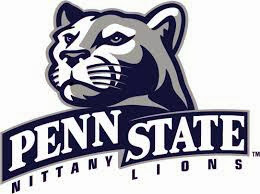[IP finance] Auctioning patent licences of university technology: does it make sense?
6 views
Skip to first unread message
Neil Wilkof
Mar 12, 2014, 3:51:00 PM3/12/14
to ip-fi...@googlegroups.com
 The patent auction industry has had its ups and downs as it continues to struggle with whether genuine markets for trading patents can be fashioned. An interesting variation of the patent auction theme was recently proposed by Penn State University, here, as reported on March 5, 2014 on managingip.com, here. According to the report, the university will conduct an auction of exclusive licences for the right to use (but not own) patents created by the university's College of Engineering. It is claimed that this auction, which will take place between March 31 and April 11, is the first of kind involving a university. Approximately 70 patents will be the subject of the licensing auction, focusing on fuel cell technology, acoustics and sensors. The auction will be conducted on the basis of a minimum opening bid, which will range from $5000 to $50,000. It is not entirely clear whether this wide differential in the opening bid reflects differences in the perceived commercial value of the patent or patents at issue, or it simply indicates that a single patent, rather than a bundle of patents, is the subject of the particular license.
The rationale for the licence auction, as expressed by Mr Ron Huss, the university’s associate vice-president for research and technology transfer, is as follows:
The patent auction industry has had its ups and downs as it continues to struggle with whether genuine markets for trading patents can be fashioned. An interesting variation of the patent auction theme was recently proposed by Penn State University, here, as reported on March 5, 2014 on managingip.com, here. According to the report, the university will conduct an auction of exclusive licences for the right to use (but not own) patents created by the university's College of Engineering. It is claimed that this auction, which will take place between March 31 and April 11, is the first of kind involving a university. Approximately 70 patents will be the subject of the licensing auction, focusing on fuel cell technology, acoustics and sensors. The auction will be conducted on the basis of a minimum opening bid, which will range from $5000 to $50,000. It is not entirely clear whether this wide differential in the opening bid reflects differences in the perceived commercial value of the patent or patents at issue, or it simply indicates that a single patent, rather than a bundle of patents, is the subject of the particular license.
The rationale for the licence auction, as expressed by Mr Ron Huss, the university’s associate vice-president for research and technology transfer, is as follows:“ ‘Penn State and other research universities typically have IP that has been marketed by their tech transfer offices but for a variety of reasons has not been picked up by a commercial entity and therefor sits on the proverbial shelf’, said in Huss in a statement. This auction is an effort to get our IP off of the shelf and in the hands of companies that can use the technology, at very favorable terms and price points. The buyers get the rights to use the IP, and the university gets a financial return. It’s a win-win situation.”A somewhat different narrative explaining the rationale for the auction was given by Mr Neil Sharkey, Interim Vice President for Research. As reported in the Statement announcing the auction, here:
“the novel approach of an online auction was chosen in part to raise awareness among interested parties in business and industry that the University does have licenses available whose commercial applications could prove extremely valuable.” Further-- "[a]s a land-grant institution, Penn State has always strived to pursue research that has real-world impact," Sharkey said. "Our researchers have worked to develop IP that has the potential to add significant value to companies' products and services, but it has no value if people are not made aware of it."I must confess to a degree of puzzlement about the planned auction. First, neither Huss nor Sharkey provide any compelling explanation why a licence auction will succeed in commercializing this technology where the university’s tech transfer department has apparently failed to do so. Indeed, one wonders whether the auction is a bit of a back-handed criticism of the effectiveness of the university’s tech transfer model. Then there is the licence agreement itself. When ownership of a patent is auctioned, such a sale of rights is a straight-forward disposition of legal rights. Not so with respect to a licence for the use of IP rights in general, and patent rights in particular.
As we all know, a proper patent licence is typically a multi-page document where the respective rights of the licensor and licensee are negotiated (sometimes more, sometimes less) against the backdrop of the particular circumstances of the transaction. Thus, the article states that ‘[t]he winners will have to sign a license agreement with the university.” If that is so, then what exactly is being auctioned with respect to the licence; is it akin to an option on being granted an exclusive licence or is something else intended? The article is not clear. Moreover, what is the process for ultimately negotiating the licence agreement? How much leeway does the winner of the auction have in negotiating the terms and conditions of the licence? Will the extent of this negotiating leeway be taken into account in the amount that the bidders will be prepared to offer? These and other questions cast a shadow on the expected degree of participation by the public and the expected monetary success of the auction. Still, the results of the action bear close attention to see if this auction model will have traction in the marketplace.
--
Posted By Neil Wilkof to IP finance on 3/12/2014 07:51:00 pm
Reply all
Reply to author
Forward
0 new messages

